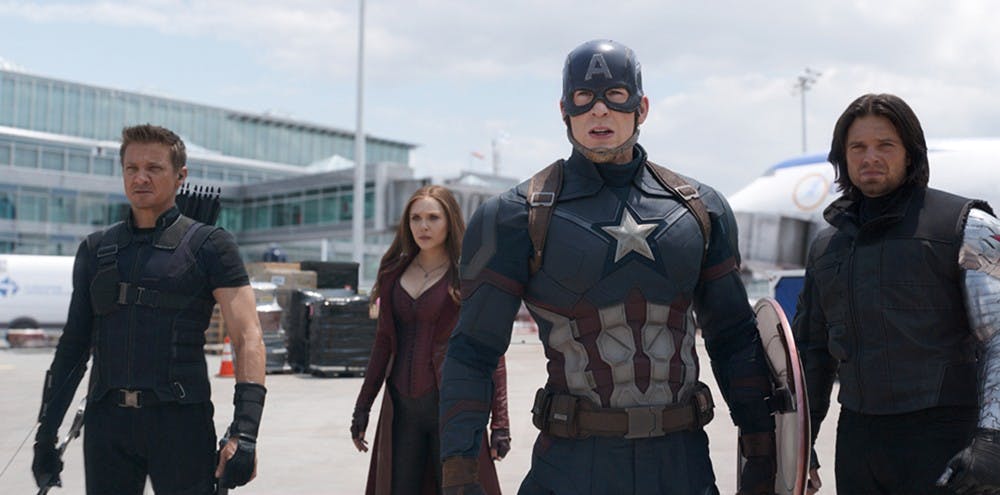While the Marvel Cinematic Universe may be great for audience engagement, it is ultimately devoid of emotional investment. Since everything is made to set up what is still to come, nothing surprising can arise without the film studio showing its hand.
Bring yourself back to May of 2008, when Marvel Studios was a far cry from the juggernaut it would one day become.
The quality of prior films bearing its license ranged from pretty good to having a tenuous connection to the source material, at best, to completely ignoring the point of the original comics they were based on, the rest just lingered comfortably around the range of mediocre.
2008’s “Iron Man,” however, was arguably the first time Marvel really came into its own, both creatively and from a business standpoint. It catapulted "Iron Man" from a B-list comic book hero in the public eye to a major pop-culture icon, and it was also the first film that gave us a glimpse of what would later become the Marvel Cinematic Universe.
The hint at an “Avengers” movie after the credits of “Iron Man” was exciting for the time. A huge crossover looming between characters like Captain America, the Hulk and Thor was a perfect way to get the audience hyped, especially if that fan was a teenage boy about to hop into high school, like I was.
Fast-forward to 2016, and that same hype is growing cold to me.
“The Avengers” in 2012 was great; it was a natural crescendo to the story arc Marvel had been building through the movies that came before it. Although that movie was just the beginning, and there is where things start getting to be a bit much.
The way Marvel has structured its movies is very much like a television series. Each movie ties into another in some way, and after the success of “The Avengers” those tie-ins expanded to television as well.
After the box office success of "The Avengers," other companies predictably followed suit, with franchises from obvious choices like DC Comics to more surprising candidates like "Ghost Busters" planning to take the leap into a shared universe.
The issue with this, for me at least, is that television and film are very different mediums. They are both visual, but the two share very different ways of storytelling by virtue of their manner of distribution.
Television shows have, by default, a more drawn out style of storytelling than film. Since an average television season consists of 20-26 episodes aired over the course of a year or so, it gives the writers far more space to breathe when writing. By trying to adapt that format to annual two-hour movies, it results in more rushed storytelling.
More worryingly so, the fact that the Marvel Cinematic Universe is structured like television deflates all dramatic tension if the movies can’t reel in viewers.
Many films are made with concise stories with a defined beginning and ending. Because of this, every character is more or less on the chopping block and, as such, when they are in danger the threat to them is much more real and carries more emotional impact.
However, in Marvel's universe, the actors are signed on for multi-year contracts. Since there are actors tied to these characters instead of them just being purely fictional. In film such danger is rarely present, as celebrities will not lose star power and theoretically their character is safe and will return for later movies in the “universe.” Robert Downey Jr. is the highest paid actor in the world; you can’t just write that pulling power off for the sake of drama.
Furthermore, when the stakes are raised enough to kill a character off, it’s telegraphed far in advance. Without spoiling anything from the recent “Avengers: Age of Ultron,” just by looking at the cast list between the film and the cast for the forthcoming “Captain America: Civil War” — both of which were public prior to the release of "Age of Ultron" — you’d know which character wasn’t walking away from the former movie alive.
There also comes a point where everything becomes so intertwined that’s it difficult to keep up. Like many college students, I have classes, work and a social life to take care of. I simply cannot keep up with the constant tie-ins of a cinematic universe, especially when the movies themselves offer no shakeups beyond setting up the film next in line.
Related Links:
"Avengers: Age of Ultron" takes our beloved Marvel heroes to dark places
Netflix Alternatives: Super hero mania
Reach the columnist at drsmit19@asu.edu or follow @Maxx_Lazerblast on Twitter.
Like The State Press on Facebook and follow @statepress on Twitter.
Editor’s note: The opinions presented in this column are the author’s and do not imply any endorsement from The State Press or its editors.




